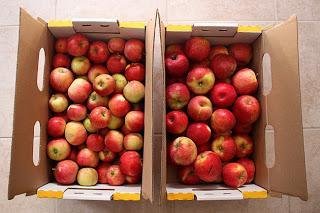Not a pretty sight.

Let’s start with the fruit fly, your basic Drosophila. A fruit fly, like a human, can become addicted to alcohol even at a very young age. The larval age. In other words, even as a maggot. And, just like humans, alcohol degrades a fruit fly maggot’s ability to learn. But adaption is an amazing thing, and drunken larvae eventually learn as well as their teetotaling cousins. That is, until the alcohol is taken away, in which case, the maggots become impaired learners once again. The larval nervous system goes haywire, and hyperexcitablity sets in. They can’t concentrate on their work. But one hour of “ethanol reinstatement” restores larval learning to normal levels.
It looks and sounds like withdrawal. Such effects in human alcoholics are often chalked up to state-dependent memory, but neurobiologists at the Waggoner Center for Alcohol and Addiction Research at the University of Texas, whose maggots these are, believe that state-dependent memory is not at work in the case of invertebrate ethanol dependence.
Brooks G. Robinson and associates fed the larvae a 5% ethanol supplement to their daily food. The maggots, incredibly enough, can reach blood-alcohol concentrations as high as 0.08, or roughly the legal limit for humans. If you blew a 0.08, the official chart says you would be suffering from impaired reasoning, disinhibition, and visual disturbances. For the maggots, no different. Larvae that fed on “ethanol food” for one hour learned poorly compared to straight maggots. The learning test, done before introducing alcohol into the picture, used a heat pulse to condition larvae away from an otherwise attractive odor. The reduced attraction to the odor is a form of associative learning. Figuratively speaking, the drunken maggots kept burning themselves on the stove as they reached for the soup. They failed the field sobriety test.
But was it truly a case of impaired learning? Perhaps the drunken larvae had an impaired sense of smell. But the researchers could not document a reduced sense of odor based on responses with untrained animals. And both groups of maggots sensed heat equally, so the reduction in learning was not due to simple alcoholic anesthesia. Could the withdrawal response be due to the fact that alcohol is a calorie-rich food? To test that possibility, the researchers ran the experiment with sucrose instead of alcohol, and didn’t record any learning impairment in that case. As for state-dependent memory, the researchers assert in Current Biology that withdrawal effects “cannot be attributed to state-dependent learning, because the less than 20 minute training and testing assay for all treatment groups occurs on nonethanol plates.”
And finally, the investigators write, “the fact that both the withdrawal-induced learning deficit and the neuronal hyperexcitability responses are reversed by ethanol reinstatement suggests that they have related origins, and that withdrawal learning may suffer because the nervous system is overly excitable.”
So what have we learned? Well, alcohol dependence in humans is clearly associated with learning and memory deficits that can last for a year or more after quitting. Now that the researchers have demonstrated cognitive alcohol dependence in invertebrates—for the first time ever, they say—it may open the door to more sophisticated genetic analyses of alcoholism in Drosophila, for all the reasons that have drawn other biologists to the study of fruit flies over the years.
And there is more research to be done relative to the finding that neuronal hyper-excitability is linked in some way to the learning deficits caused by alcohol. A brief article by Stefan Pulver in the Journal of Experimental Biology notes that the work of Robinson and colleagues “reinforces how eerily conserved ethanol’s physiological effects are across animal taxa. Alcohol addiction is truly the great leveller. It doesn’t matter whether you are man, mouse or maggot—over-consumption of alcohol will trigger very similar cellular and behavioral responses, with devastating consequences.”
Robinson B., Khurana S., Kuperman A. & Atkinson N. (2012). Neural Adaptation Leads to Cognitive Ethanol Dependence, Current Biology, 22 (24) 2338-2341. DOI: 10.1016/j.cub.2012.10.038

